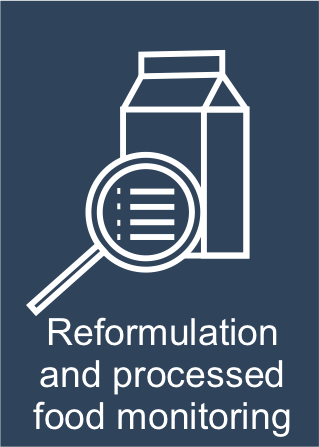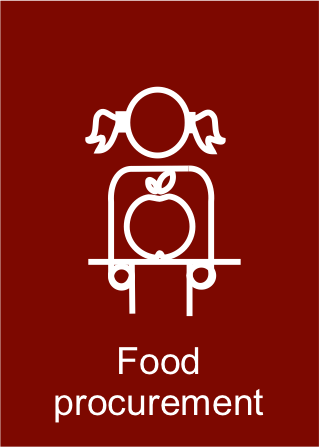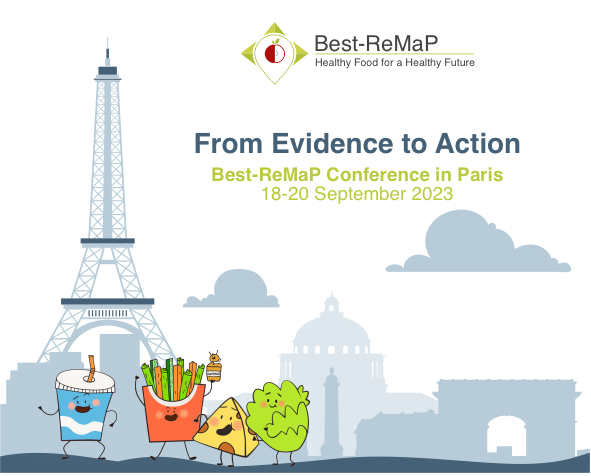One in three children in Europe are overweight or obese according to World Health Organisation figures. By 2035, 28 million children in 53 European region countries could live with obesity. With the current level of policy ambition, we are likely to see a 61% increase in obesity for boys and a 75% increase for girls by 2035. If not prevented, it will be a major problem for health and the economy. Clearly, Europe faces a childhood obesity epidemic.
Legislation has fallen short. The joint action project Best-ReMaP, launched in 2020 and coordinated by the Slovenian National Institute for Public Health, features a consortium of 36 partners from 24 European countries. The project aims to adapt and implement good practices in three interrelated angles of food policies including monitoring food composition, restricting unhealthy food advertising, and establishing quality and sustainable standards in public food procurement. These changes aim to increase the availability and promotion of healthier processed foods with reduced salt, sugar and fat on EU markets.
 Monitoring nutritional composition across Europe with a new food database
Monitoring nutritional composition across Europe with a new food database
Best-ReMaP with the leadership of Anses, France, developed a brand level food monitoring tool across 18 European countries. Data from over 30,000 branded products has been added to a database which will provide access to information for over 100,000 products in Europe. 5 priority food groups important for the youth market were identified in the process, as they contribute to the intake of sugar, fat, saturated fat and salt: bread products, breakfast cereals, delicatessen meats, dairy products and soft drinks.
Partners were trained to carry out statistical analysis on programmes created to standardise the work to ensure that partners produce similar indicators. This data allows nutritional value comparisons to be made so consumers can make healthy choices. The tool is designed to promote reformulation at the manufacturer level to improve the nutritional quality of their products and to help policymakers to define and assess nutrition policies.
At Best-ReMaP’s recent event in Brussels, attendees got a sneak peek of the Commission’s newest tool, the Food and Beverages Labels Explorer – FABLE, a web-based nutrition information tool provided by the Commission’s Joint Research Centre. Alongside Best-ReMaP data, it also hosts data from previous EU projects, like Euremo and JANPA. FABLE gives Europe’s citizens and organisations the chance to monitor the nutritional quality of the food offer, which can incentivise reformulation efforts and lead to an improved food offering, thereby making healthier choices more available to consumers. The launch is planned before the end of 2023.
 Reducing the marketing of unhealthy foods to children
Reducing the marketing of unhealthy foods to children
Food marketing is a powerful industry, glamourising food from across the nutrition spectrum. Children are exposed to adverts for unhealthy foods which have an impact on attitudes, beliefs and perceptions. The majority of food marketing targeted at children and teenagers promotes high calorie, low nutrient-quality foods. With food preferences formed in the early years of life, these decisions have a direct effect on overall health, wellbeing and the risk of obesity.
Self-regulation of this market has not worked, and we need to go beyond the AVMSD.
Professor Amandine Garde, University of Liverpool
Whilst the WHO and UNICEF recommend restricting the marketing of unhealthy foods to children to reduce childhood obesity, the only legislation targeting the issue is the Audiovisual Media Services Directive (AVMSD). The directive aims to coordinate national legislation on audiovisual media but is built on self-regulation. According to Professor Amandine Garde from the University of Liverpool, “Self-regulation of this market has not worked, and we need to go beyond the AVMSD ”.
Best-ReMaP took action across 12 countries to study the impacts of a limit on advertising from unhealthy food providers and shared best practices. Action was led by Ministries of Health and varied between countries. Portugal legally imposed restrictions around the advertising of food and beverages high in energy, salt, sugar, saturated fat, and trans fatty acids to be broadcasted 30 minutes before and after programmes with a minimum of 25% audience of children under 16 years old. In Ireland, the Children’s Commercial Communications Code set the rules for broadcasters with advertising designed to promote products, services, or activities deemed to be of interest to children or broadcasted during and between children’s programmes.
Nutrition expert Maria João Gregório, explained that “the Commission’s lack of willingness to regulate the unhealthy foods market is used as a justification for member states not to act”. Industry power and interests put people at risk making the issue difficult for policymakers.
Results found that for restrictions to be successful, government support is needed on a supranational level. According to Gregório, “With digital, we have cross-border marketing so it’s not possible to restrict with a national law, we need to go beyond”. Best-ReMaP recommend that government-led regulatory approaches should be adopted on an EU level, with policies covering the reduction or removal of unhealthy food marketing and an increase of age threshold for marketing regulations to 18 years old.
With digital, we have cross-border marketing so it’s not possible to restrict with a national law, we need to go beyond.
Maria João Gregório, Nutrition Expert
The full framework for action on food marketing, released in September, will set out a new nutrient profile model for restrictions, defined not by the food industry but by the WHO and provide the key implementation elements for effective policies.
 Encouraging children to choose nutritious diets over fast food
Encouraging children to choose nutritious diets over fast food
Despite being a policy-focused project, reaching the target audience of children and teenagers is crucial. Project partner Semmelweis Medical University of Hungary produced an educational animated video "Fresh Food Hollywood" to encourage children to recognise the powerful effect of food advertisement as well as to choose nutritious diets over fast food. The video highlighted the positive effects that a balanced food intake has on physical and mental health and aims to shift the perception that fast food is cool. The video was nominated in the competitive programme of the KAFF Animation Film Festival.
 “Procurement officers are the gatekeepers to healthy eating”
“Procurement officers are the gatekeepers to healthy eating”
The social food service market in Europe is worth an estimated €82 billion, so the public procurement system has huge potential to influence public funds within the public health-driven policy agenda. The Best-ReMaP food procurement research team, led by the Slovenian National Institute for Public Health, identified that the current implementation of public food procurement across EU Member States was not transparent. Their activities aimed to provide information, knowledge and insights to enable public institutions across the EU to access high-quality, healthy and nutritious food.
Improving food choices in nurseries and schools was a key focus of Best-ReMaP. The project tested a pilot food procurement best practice tool, a Catalogue of foods, to allow schools and nurseries to easily, transparently and efficiently make procurement orders. Products were categorised with classifications including the distance the product travels to help procurement teams make sustainable choices.
The team conducted a situational analysis of legislation related to food procurement and facilitated effective inter-sectoral and stakeholder cooperation within all project partners with a proposed framework for action on food procurement in public settings set to be issued. Implementing healthy public food procurement and service policies contributes to the promotion of healthy diets and can have an impact on reducing the incidence of childhood obesity.
"Our activities reduce the fattening environment with the help of coordinated measures by member states while taking into account quality and sustainability standards” Mojca Gabrijelčič-Blenkuš, Expert Coordinator of Best-ReMaP explained.
To foster learning across procurement officers, an EU procurement officers network was established. Project partner Betina Bergmann Madsen from the Municipality of Copenhagen, a driving force behind the network, explained ‘only half of the procurement officers were conducting market engagement by doing procurement’. Very few knew about the green procurement guidelines from the Commission supposedly implemented on a member state level. Best practices are now shared to drive change across the EU. With procurement happening at different times between regions, the network is a chance to stay up to date in a constantly evolving field. The European Procurement Network is planned to live past the end of Best-ReMaP with discussions taking place about a global network.
Advocating for an instrument that measures the impact of the food system of European societies
Despite the EU's commitment to a more sustainable food system, EU policy strategies lack systemic indicators. The European Semester, the primary instrument for policy coordination, has integrated other policy fields, such as the Social Scoreboard of the European Pillar of Social Rights. A comprehensive Food System Sustainability Scoreboard (FSSS) could measure the EU's progress towards a sustainable food system and support the implementation of sustainability outputs. Best-ReMaP has included the FSSS in its sustainability outputs to promote the creation of sustainable food systems and a socioeconomic framework conducive to the project's core goals.
The Italian National Institute of Health, assisted by EuroHealthNet, will produce a final report describing which project findings will be further developed, consolidated, and integrated into national policies, and which institutions would be in charge of national-scale consolidation and integration processes. Following the Best-ReMap closing conference in September, the team will embark on a new joint action to dive into the wider details of health risks and look at how the EU can create a healthier society.

The JA Best-ReMaP project was co-funded by the European Union's Health Programme (2014-2020).
.png)
Sign up to The Parliament's weekly newsletter
Every Friday our editorial team goes behind the headlines to offer insight and analysis on the key stories driving the EU agenda. Subscribe for free here.